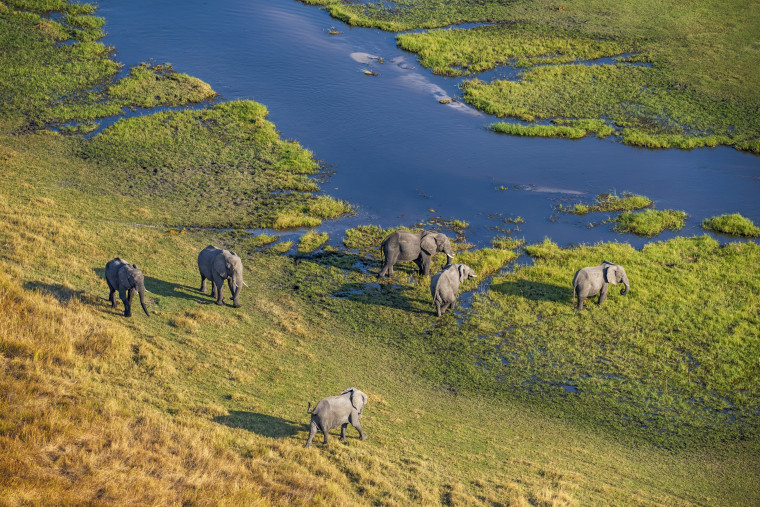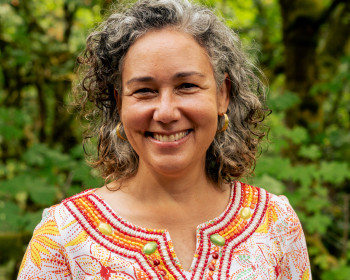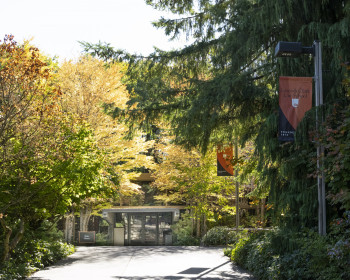National Geographic Whistleblower Story Quotes Professor
Clinical Professor Erica Lyman was quoted as a legal expert in a National Geographic article regarding an oil and gas project that threatens endangered animals and the environment in Africa.
Open gallery

Clinical Professor Erica Lyman, Director of the Global Law Alliance for Animals and the Environment at Lewis & Clark Law School, was quoted as a legal expert in a May 21, 2021 National Geographic article regarding an oil and gas project that threatens endangered animals and the environment in Africa.
The Okavango Delta in Namibia and Botswana, Africa, is the world’s elephant stronghold. It is the migratory route for the largest remaining herds of endangered elephants and supports other threatened and endangered species, including cheetahs, rhinos, African wild dogs, vultures, and southern ground hornbills. A Canadian oil and gas company —ReconAfrica— was granted a license for exploratory oil and gas drilling. Now, a confidential whistleblower complaint filed with the U.S. Securities and Exchange Commission (SEC) alleges that ReconAfrica misrepresented its work on the project in more than 150 instances. Among the misrepresentations alleged is that ReconAfrica told environmental regulators that there would be no fracking, while it represented to its investors that it was also targeting resources that typically require fracking to extract.
“On one hand, the company has said that fracking is not in their vocabulary, and they’ve changed references throughout their website,” Professor Lyman says in the article. “But on the other hand, their investor reports, the expertise of their staff, and their statements regarding the scale of the resources here all appear to be based on fracking of unconventional resources. It stands to reason that the public is confused.” She notes that ReconAfrica continues to base its oil production and revenue estimates on fracking in its reports.
According to Professor Lyman, a major fracking endeavor in the Okavango delta region would be counter to much regional and international effort to protect the area, such as new conservation areas in southeast Angola, listing of the Delta as a World Heritage site, and the commitment of the governments to cooperate through the Kavango-Zambezi Transfrontier Conservation Area. “The entire operation could be massively disruptive to the wildlife in the Okavango region and, crucially, to the freshwater resources of the region on which the entire ecosystem, wildlife included, depend.” The Global Law Alliance is working to protect the wildlife, the environment, and the people in this fragile ecosystem.
[About GLA]
In the fall of 2020, the world-renowned Center for Animal Law Studies (CALS) and the #1 ranked Environmental Law Program at Lewis & Clark Law School worked together to leverage existing programs, creating one overarching collaboration for greater impact to the international community, as well as more practical training opportunities for law students. This exciting collaboration is the Global Law Alliance for Animals and the Environment. Global Law Alliance is a champion for wild animals and wild spaces across the globe, working to protect animals and the environment through the development, implementation, and enforcement of international law.
Law Communications is located in room 304 of Legal Research Center (LRC) on the law Campus.
MSC: 51
email jasbury@lclark.edu
voice 503-768-6605
Cell: 626-676-7923
Assistant Dean,
Communications and External Relations, Law School
Judy Asbury
Law Communications
Lewis & Clark Law School
10101 S. Terwilliger Boulevard MSC 51
Portland OR 97219

